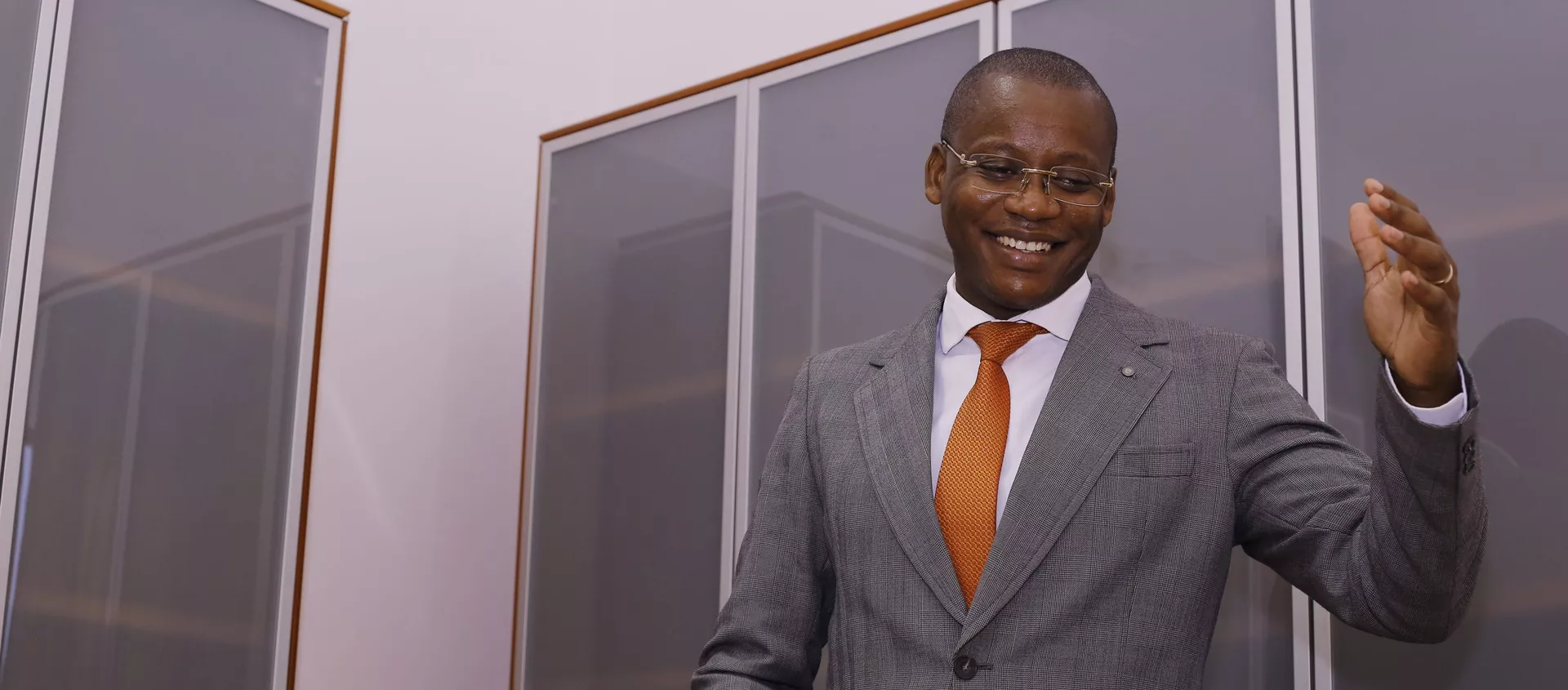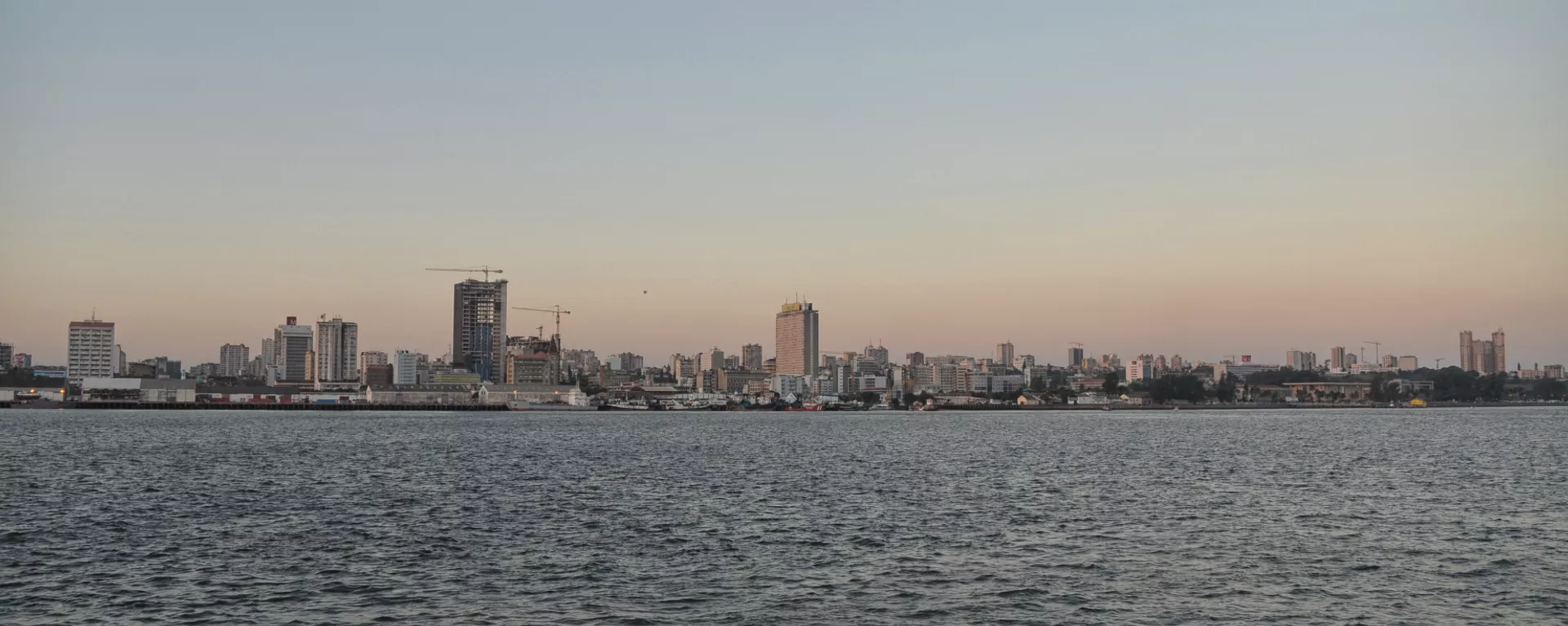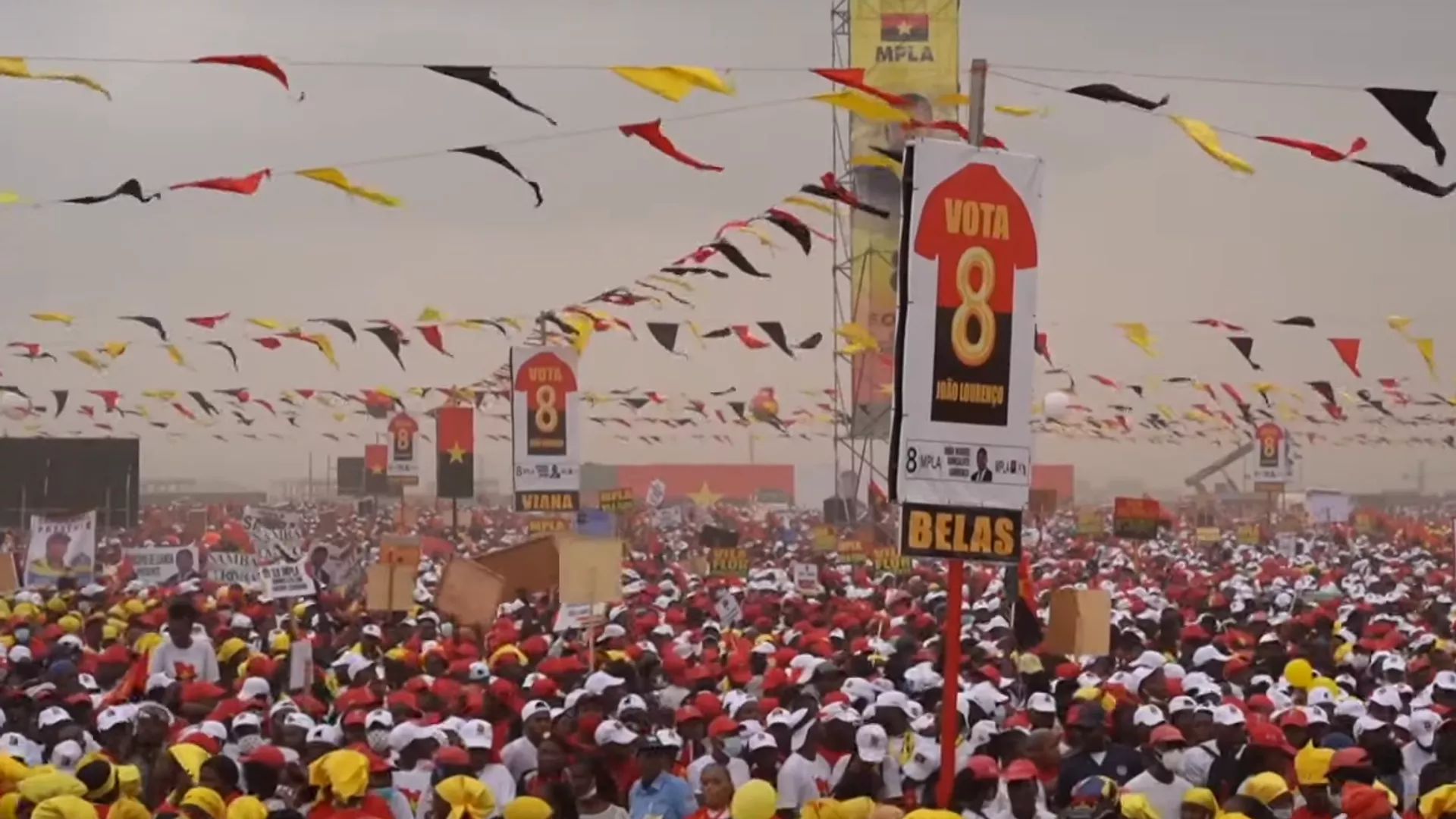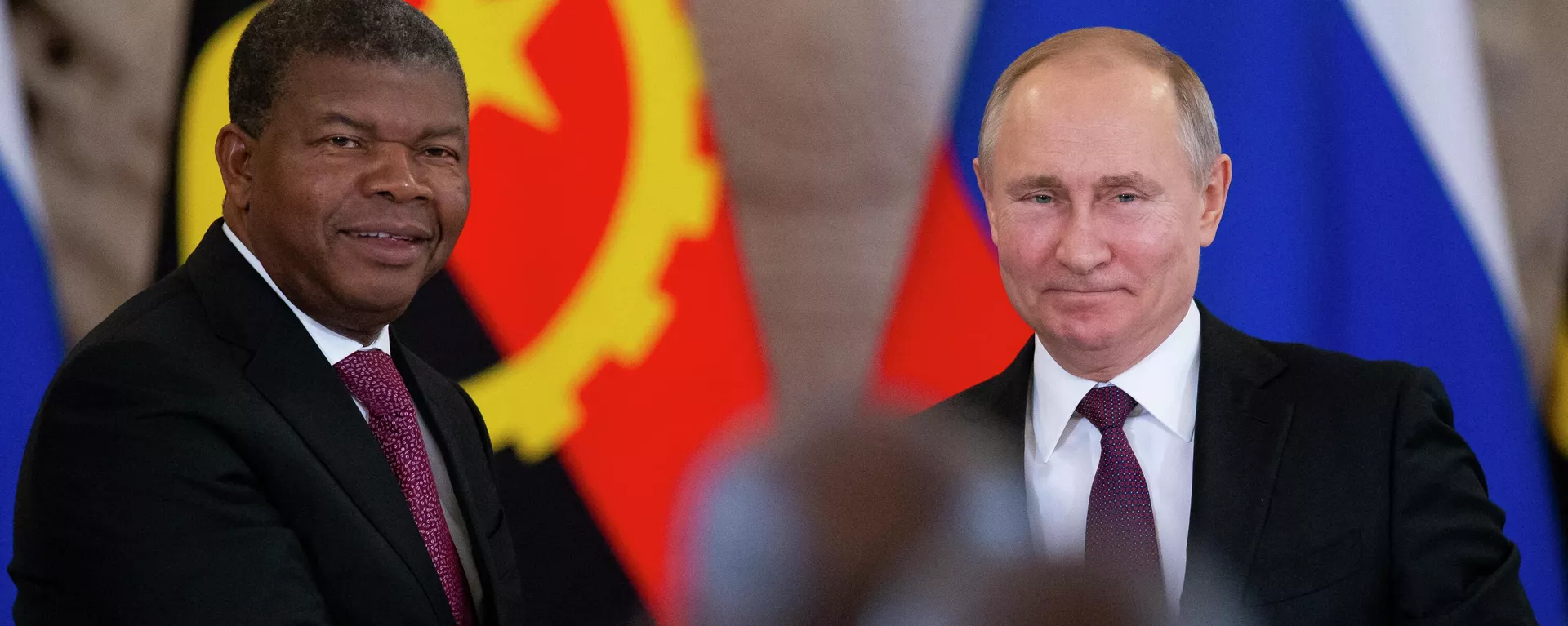https://sputnikglobe.com/20220824/elections-in-angola-whats-at-stake-as-oil-rich-african-nation-heads-to-the-polls-1099917464.html
Elections in Angola: What’s at Stake as Oil-Rich African Nation Heads to the Polls
Elections in Angola: What’s at Stake as Oil-Rich African Nation Heads to the Polls
Sputnik International
Wednesday’s elections are Angola’s fourth since the end of a brutal, decades-long foreign-backed civil war in 2002, with the main opposition group which once... 24.08.2022, Sputnik International
2022-08-24T06:00+0000
2022-08-24T06:00+0000
2022-11-23T11:37+0000
africa
angola
vote
economy
elections
central africa
https://cdn1.img.sputnikglobe.com/img/07e6/08/17/1099917319_0:64:1163:718_1920x0_80_0_0_747b87f1882c21e65ed3ca190725d349.png.webp
Angolans are heading to the polls to elect a new national assembly, with the leader of the party or electoral alliance that receives the most seats in parliament automatically becoming president.Incumbent Joao Lourenco of the ruling center-left People’s Movement for the Liberation of Angola (Portuguese acronym MPLA) is expected to handily secure a second and final term in office, with 59 percent of would-be voters polled by Angopolls last month indicating that they would vote for the MPLA.Another 33 percent said they would vote for the National Union for the Total Independence of Angola (Portuguese acronym UNITA), the rebel group-turned center-right political force which once engaged the MPLA in a bitter struggle for power after Angola won its independence from Portugal in 1975.The MPLA, which has been in power since independence, coasted to victory in the 2017 election with 61.1 percent of the vote, with UNITA taking 26.7 percent. The breakdown allowed the MPLA to secure 150 seats in the 220 seat National Assembly, with UNITA taking 51.UNITA leader Adalberto Costa Junior, a long-time representative of the rebel group who spent decades abroad in Portugal and Italy before returning to his native country, is banking on pent up frustrations and expectations centered largely around the state of the economy.UNITA has joined forces with smaller parties to create a ‘United Patriotic Front’ electoral alliance, and its base of support among the estimated 14 million eligible voters are young people who don’t remember Portuguese rule, the MPLA’s defining role in securing independence, the civil war or former President Jose Eduardo dos Santos’ role in ending the conflict, which claimed about one million lives.Costa Junior has used populist rhetoric and skillfully employed YouTube, Twitter and other social media to run an effective guerilla electoral campaign in an environment where much of the national media is controlled by pro-MPLA forces.What’s at Stake?Angola is one of Africa’s largest energy producers, ranking fourth behind Nigeria, Libya and Algeria and producing 56.6 million metric tons of crude in 2021 (equivalent to about 1.2 million barrels of oil per day). Oil accounts for as much as 95 percent of the country’s export earnings, with its main export partners including China, India, the United States, Spain and South Africa.The United States and its allies spent decades lusting after Angola’s hydrocarbon riches during the Cold War, with the CIA and Apartheid South African forces in backing UNITA in the 1970s and 1980s after the Soviet and Cuban-backed MPLA took power in Luanda. Angola’s ties with Washington began to improve after UNITA leader Jonas Savimbi was killed in an Angolan Army commando raid in 2002, bringing an end to the civil war. Cutting its losses and reconciling with its failure to unseat the MPLA, the US recognized the dos Santos government.Despite Angola’s incredible oil wealth, the country’s per capita purchasing power parity GDP leaves something to be desired, with the country ranking fifteenth among 54 African nations, behind other energy producers including Libya and Algeria, but also nations like South Africa and Namibia, which are not amply endowed with hydrocarbon resources.President Lourenco’s campaign has centered around the need for stability and continuing the course set after independence and post-civil war reconstruction, including gradual economic development at home and the forging of new political and economic alliances abroad, including among emerging power blocs like the BRICS nations.However, modest economic growth of 0.7 percent growth after a grueling five-year-long recession in the 2010s, combined with a series of liberalization and privatization schemes have served to gradually chip away at support for the ruling party. Persistent inflation, averaging about 25 percent in 2022, combined with unemployment of up to 30 percent of the workforce, are other economic challenges which the MPLA has not managed to overcome. Finally, dependence on food imports, which have grown more expensive in the wake of the West’s sanctions war against Russia, have dampened economic expectations recently.Despite differences in optics, and brash headlines by some foreign media about the 2022 election being an “existential” choice “between continuity and change,” Lourenco and Costa Junior’s economic proposals are quite similar, with Bloomberg contributor Henrique Almeida recently pointing out that each of the men and their parties are promising to tackle big ticket items like jobs, the cost of living crisis, and corruption, and both advocating for more economic liberalism.Media Preemptively Prepares ‘Free and Fair Election’ RhetoricBefore the election could even begin, Western media ranging from Time Magazine and Voice of America to The Guardian and France 24 started clamoring about the “human rights” situation in Angola, calling for “free and fair elections,” and casting doubt on whether a fair vote was possible.Chloe Buire, a researcher at the National Center for Scientific Research in France, told Time that she expects the elections to be “stolen” through a centralized vote-counting mechanism introduced last year. Meanwhile, author and analyst Paula Christina Roque told The Guardian that the opposition would “no doubt” win in free and fair elections, but that “the government is not going to allow that.”Angola’s National Electoral Commission has assured that the vote will be open and fair, with observers from neighboring countries, including South Africa and Namibia, as well as foreign media, trickling into the country in recent weeks to monitor the vote and watch out for any funny business. A total of 2,000 observers, both Angolans and foreigners, are monitoring the vote on the ground at polling places across the country.
https://sputnikglobe.com/20210215/from-angola-to-russia-via-brazil-african-maths-wizard-tells-sputnik-about-his-journey-1082083353.html
https://sputnikglobe.com/20220503/angola-ready-to-bypass-sanctions-to-preserve-cooperation-with-moscow-russian-ambassador-says-1095229277.html
https://sputnikglobe.com/20220603/anti-russia-sanctions-left-africa-without-access-to-grain-and-fertilizers-senegalese-president-says-1095966996.html
https://sputnikglobe.com/20220823/multi-million-dollar-deal-marks-resumption-of-financial-support-of-mozambique-by-world-bank-1099912674.html
africa
angola
central africa
Sputnik International
feedback@sputniknews.com
+74956456601
MIA „Rossiya Segodnya“
2022
News
en_EN
Sputnik International
feedback@sputniknews.com
+74956456601
MIA „Rossiya Segodnya“
Sputnik International
feedback@sputniknews.com
+74956456601
MIA „Rossiya Segodnya“
angola, vote, economy, elections, central africa
angola, vote, economy, elections, central africa
Elections in Angola: What’s at Stake as Oil-Rich African Nation Heads to the Polls
06:00 GMT 24.08.2022 (Updated: 11:37 GMT 23.11.2022) Wednesday’s elections are Angola’s fourth since the end of a brutal, decades-long foreign-backed civil war in 2002, with the main opposition group which once challenged the ruling party through the barrel of a gun now hoping to defeat it at the ballot box.
Angolans are heading to the polls to elect a new national assembly, with the leader of the party or electoral alliance that receives the most seats in parliament automatically becoming president.
Incumbent Joao Lourenco of the ruling center-left People’s Movement for the Liberation of Angola (Portuguese acronym MPLA) is expected to handily secure a second and final term in office, with 59 percent of would-be voters polled by Angopolls last month indicating that they would vote for the MPLA.
Another 33 percent said they would vote for the National Union for the Total Independence of Angola (Portuguese acronym UNITA), the rebel group-turned center-right political force which once engaged the MPLA in a bitter struggle for power after Angola won its independence from Portugal in 1975.
The MPLA, which has been in power since independence, coasted to victory in the 2017 election with 61.1 percent of the vote, with UNITA taking 26.7 percent. The breakdown allowed the MPLA to secure 150 seats in the 220 seat National Assembly, with UNITA taking 51.
UNITA leader Adalberto Costa Junior, a long-time representative of the rebel group who spent decades abroad in Portugal and Italy before returning to his native country, is banking on pent up frustrations and expectations centered largely around the state of the economy.
UNITA has joined forces with smaller parties to create a ‘United Patriotic Front’ electoral alliance, and its base of support among the estimated 14 million eligible voters are young people who don’t remember Portuguese rule, the MPLA’s defining role in securing independence, the civil war or former President Jose Eduardo dos Santos’ role in ending the conflict, which claimed about one million lives.
Costa Junior has used populist rhetoric and skillfully employed YouTube,
Twitter and other social media to run an effective guerilla electoral campaign in an environment where much of the national media is controlled by pro-MPLA forces.

15 February 2021, 15:18 GMT
Angola is one of Africa’s largest energy producers, ranking
fourth behind Nigeria, Libya and Algeria and producing 56.6 million metric tons of crude in 2021 (equivalent to about 1.2 million barrels of oil per day). Oil accounts for as much as 95 percent of the country’s export earnings, with its main export partners including China, India, the United States, Spain and South Africa.
The United States and its allies spent decades lusting after Angola’s hydrocarbon riches during the Cold War, with the CIA and Apartheid South African forces in backing UNITA in the 1970s and 1980s after the Soviet and Cuban-backed MPLA took power in Luanda. Angola’s ties with Washington began to improve after UNITA leader Jonas Savimbi was killed in an Angolan Army commando raid in 2002, bringing an end to the civil war. Cutting its losses and reconciling with its failure to unseat the MPLA, the US recognized the dos Santos government.
Despite Angola’s incredible oil wealth, the country’s per capita purchasing power parity GDP leaves something to be desired, with the country ranking
fifteenth among 54 African nations, behind other energy producers including Libya and Algeria, but also nations like South Africa and Namibia, which are not amply endowed with hydrocarbon resources.
President Lourenco’s campaign has centered around the need for stability and continuing the course set after independence and post-civil war reconstruction, including gradual economic development at home and the
forging of new political and economic alliances abroad, including among emerging power blocs like the BRICS nations.
However, modest economic growth of 0.7 percent growth after a grueling five-year-long recession in the 2010s, combined with a series of liberalization and privatization schemes have served to gradually chip away at support for the ruling party. Persistent inflation, averaging about 25 percent in 2022, combined with unemployment of up to 30 percent of the workforce, are other economic challenges which the MPLA has not managed to overcome. Finally, dependence on food imports, which have grown more expensive in the wake of the West’s sanctions war against Russia, have dampened economic expectations recently.
Despite differences in optics, and brash headlines by some foreign media about the 2022 election being an
“existential” choice
“between continuity and change,” Lourenco and Costa Junior’s economic proposals are quite similar, with Bloomberg contributor Henrique Almeida recently
pointing out that each of the men and their parties are promising to tackle big ticket items like jobs, the cost of living crisis, and corruption, and both advocating for more economic liberalism.
Media Preemptively Prepares ‘Free and Fair Election’ Rhetoric
Before the election could even begin, Western media ranging from
Time Magazine and
Voice of America to
The Guardian and
France 24 started clamoring about the “human rights” situation in Angola,
calling for “free and fair elections,” and casting doubt on whether a fair vote was possible.
Chloe Buire, a researcher at the National Center for Scientific Research in France, told Time that she expects the elections to be “stolen” through a centralized vote-counting mechanism introduced last year. Meanwhile, author and analyst Paula Christina Roque told The Guardian that the opposition would “no doubt” win in free and fair elections, but that “the government is not going to allow that.”
Angola’s National Electoral Commission has assured that the vote will be open and fair, with observers from neighboring countries,
including South Africa and Namibia,
as well as foreign media, trickling into the country in recent weeks to monitor the vote and watch out for any funny business. A total of
2,000 observers, both Angolans and foreigners, are monitoring the vote on the ground at polling places across the country.

23 August 2022, 16:29 GMT







